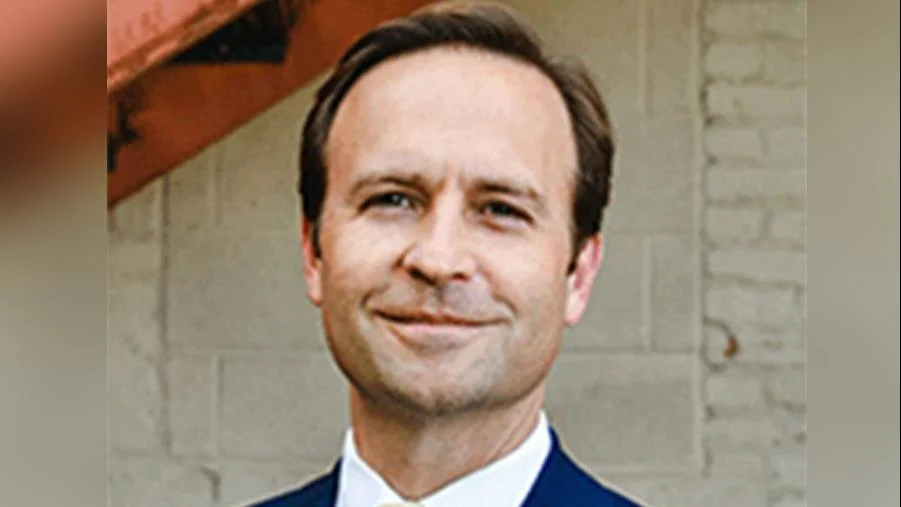Brian Calley President and Chief Executive Officer at Small Business Association of Michigan | Official website
Brian Calley President and Chief Executive Officer at Small Business Association of Michigan | Official website
The Michigan state government operated without a budget for four hours on Wednesday morning, an occurrence that has led to differing explanations from Republican and Democratic leaders in the legislature.
House Speaker Matt Hall (R-Richland Township) attributed the delay to efforts to increase transparency around legislative earmarks. "The reason the government shut down is because the Democrats didn’t want to do this, and we took it all the way up to the brink, and then they did it, and we’re going to make it a permanent law change, and it’s going to be a good change, and we significantly cut the pork," Hall said.
Senate Appropriations Committee Chair Sarah Anthony (D-Lansing) presented another perspective, stating that delays stemmed from what she described as a manufactured crisis by House Republicans. According to Anthony, the House did not pass its budget until August and then prolonged negotiations through an unorthodox process. "That’s the common denominator. Whether it’s from the federal level or the state level, Republicans now have a seat at the table, and when they do, you see chaos. We’re sitting here on Oct. 2, and we’re finally getting serious about making sure people have predictable funding," Anthony said.
Speaker Hall emphasized his focus on transparency regarding earmarks after negative attention over past secretive practices that led to criminal charges. Since 2023, Senate Democrats had supported releasing information about who requested which earmarks months after budgets were signed—an approach Hall rejected upon becoming speaker.
Hall said passing his proposed Hall Ethics, Accountability and Transparency (HEAT) package would prevent future delays by requiring earlier disclosure of earmark requests. He claimed Senate Democrats' reluctance to disclose these details contributed significantly to this year's delay but ultimately agreed just before deadline.
"I’ve never seen anything like the Democrats’ addiction to pork spending and how, even after we settled that, how they kept trying to shove it in. I mean, every day, finally I had to tell them, ‘Look, I’m not moving the government shutdown prevention plan until we end this discussion,’ and then we ended it. We put it up for a vote. This stuff’s out of control," Hall said.
Anthony dismissed these claims as exaggerated in light of lost federal funds this year alongside increased demands for road funding—factors she argued left less money available for earmarks regardless of process changes.
In response to transparency concerns raised by House Republicans, on Monday senators adopted a resolution mandating disclosure of all legislative earmark requests before passage of any related budget bill; such disclosures are now available via the Michigan Senate website. The Senate Appropriations Committee released its full list shortly before conference committee discussions began on omnibus budget legislation.
Anthony also noted that House Republicans passed their own "shutdown prevention" bill back in March—a move she interpreted as signaling intent to use time pressure as leverage during negotiations.
"This has been a very long and non-traditional process," Anthony said. "I think that there were a lot of missed opportunities to compromise in a civil way, but we did get there . . . Under my leadership, I’ve shown that you can get a budget done by July 1, so hopefully we can get it right next year and cooler heads and more civil conversations can happen earlier."
Representative Alabas Farhat (D-Dearborn), lead House Democrat for appropriations work this session, acknowledged difficulties with recent proceedings: "ugly." Despite challenges he noted bipartisan cooperation eventually prevailed.
When asked whether voters would prefer late budgets with broad support or timely ones along party lines Speaker Hall replied: “You would have had all kinds of scandalous spending . . . at least we bended the Senate and Lansing to the House Republicans’ will on this, and we forced them to have a hearing telling us what all that stuff was before it went in,”
Farhat expressed satisfaction with improvements in transparency: “I’d love to see more transparency like FOIA [Freedom of Information Act]... even budget requirement timelines for presentation.” He cited lack of early proposals from either chamber as one reason for delays but credited prompt action once bills were introduced.
He added: “We need to focus more on issues working families...are asking us [about] rather than political gamesmanship.”
Democratic Representative Ranjeev Puri highlighted prior years’ adherence under unified party control: “We did it on time last couple years in trifecta…Democrats knew this was coming if statutory requirements weren’t met.”
Puri added that while no budget is perfect current measures safeguard core services such as Medicaid or SNAP benefits while supporting schools roads state police employment—and outlined goals for further improvements should Democrats regain majority control statewide: “No budget is perfect…but…we’re going fight for Democratic trifecta…so…we can build on work.”
For additional information visit the Michigan Senate website.






 Alerts Sign-up
Alerts Sign-up